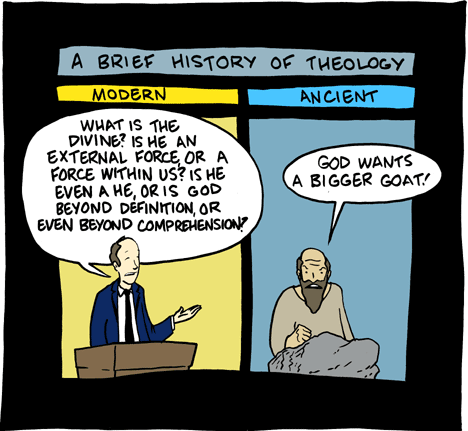
To begin with, let me state that I believe that we are called by God to care for the poor, the sick, the oppressed, and the marginalized. I also believe that we can do more good collectively than we can as individuals. I favor government administrated redistribution of resources so that the costs of caring for all God's children can be shared by all so that it does not become an unbearable burden for any. By most definitions this makes me "liberal."
Therefore I was dismayed to learn of the recently published, Who Really Cares: The Surprising Truth About Compassionate Conservatism by Arthur C. Brooks in which Brooks presents findings from studies that suggest people who self-describe as "conservative" donate more time, money, and blood to charity than people who self-describe as "liberal."
• Although liberal families' incomes average 6 percent higher than those of conservative families, conservative-headed households give, on average, 30 percent more to charity than the average liberal-headed household ($1,600 per year vs. $1,227).
• Conservatives also donate more time and give more blood.
• Residents of the states that voted for
John Kerry in 2004 gave smaller percentages of their incomes to charity than did residents of states that voted for
George Bush.
• Bush carried 24 of the 25 states where charitable giving was above average.
• In the 10 reddest states, in which Bush got more than 60 percent majorities, the average percentage of personal income donated to charity was 3.5. Residents of the bluest states, which gave Bush less than 40 percent, donated just 1.9 percent.
• People who reject the idea that "government has a responsibility to reduce income inequality" give an average of four times more than people who accept that proposition.
The articles lack some critical information, such as what constituted a "charity" in the studies. However, if non-profit political lobbying groups were included in the studies, the implication would seem to be that on average liberals are willing to pay more taxes, but only if everyone is forced to do it collectively; if no one else has to give money, liberals won't do it. What this means for our society is that when liberals fail to muster the political clout to raise taxes, we take less individual responsibility for ensuring that the needs that would have been covered by taxes are met. Conservatives, on the other hand, appear to actually take more individual responsibility for ensuring that the needs of society are met when there are not taxes to cover those needs.
I would by no means encourage anyone to become conservative based on this book, but what I take away from this is that while voting, our liberal mentality is great, but if resolutions to provide state funding fail, we need to take a cue from our conservative sisters and brothers and provide direct assistance to social services in addition to working to change the government.
An enlightening bit of information on this subject is the finding that religion is actually the greatest determining factor in altruism, not political views (unfortunately, it just so happens that a large percentage of conservatives are religious whereas a smaller percentage of liberals are). Secular conservatives are actually the least generous group.
I would suggest that the book's finding can find partial explanation in that people who attend church/synagogue/temple/mosque meet regularly with a community that reminds them of the needs of others, encourages aiding others, and provides readily available means to aid others. In the fast paced, sanitized, and isolated world of suburbia, cars, and indoor entertainment, it can be easy to feel passionate about an issue without actually having to confront it or actively participate in it. Attending a religious gathering can and should be an opportunity to engage with people and communities both on a local and global scale.
 the celebration of the days getting longer, the celebration that future will be brighter than the past, the celebration that greatest power in the universe--love--is found in the form of a little baby. Christmas is a festival of new life.
the celebration of the days getting longer, the celebration that future will be brighter than the past, the celebration that greatest power in the universe--love--is found in the form of a little baby. Christmas is a festival of new life.

























